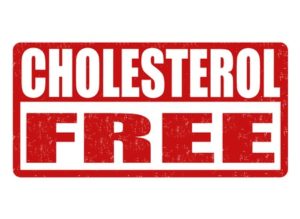Is a cholesterol free diet a healthy diet? … Here in part 2 of this series we discuss how low cholesterol affects cell membrane integrity, bile production, fat assimilation, toxin removal, immunity, inflammation, and mental state functioning.
Cholesterol Imbalance: Low Cholesterol Health Ramifications (Part 2)
Consider Low Cholesterol & Other Top Nutritional Syndromes: The BodyMindLink
Low cholesterol syndromes as a world health risk are described in part 1 of this series. To maintain efficient body systems, longevity, and general wellness, it is important to consider low cholesterol and 15 other top metabolic syndromes associated with optimal health.
Low Cholesterol: Poor Cell Membrane Integrity
Cholesterol is important to human life as it is a basic structural building block of cell membranes. If we were deficient in cholesterol, the trillions of cells of our body would have poor structural integrity and prone to deteriorate.
Low Cholesterol: Inadequate Bile Production, Fat Assimilation, and Toxin Removal
Cholesterol is a component of bile and having adequate bile production is essential to dietary fat digestion and the absorption of fat soluble vitamins D, E, A, K, and carotenoids.
Bile is useful for the removal of toxins including heavy metals (copper, lead, mercury) and other environmental chemicals that are made water soluble by liver phase I and II detoxification.
Without bile (which is a buffering salt) it is difficult to alkalize any acidic or partially digested food that exits the stomach and this acid can reflux and cause indigestion (GERD).
Low Cholesterol: Immune Compromise
Low cholesterol predisposes you to infection risk. The highest likelihood of parasitic infection for example is among those with the lowest cholesterol levels.
LDL cholesterol (a lipo-protein that carries cholesterol to cells) is protective against pathogens (bacteria, parasites) and low LDL levels increase your risk of infection. LDL can actually bind and inactivate gram negative bacteria endotoxins that cause the immune system to over-react (for example, by releasing pro-inflammatory cytokine TNF-a).
Immune compromise can be supported with a comprehensive naturopathic approach.
Low Cholesterol: Auto-Immune States
Cholesterol acts as a potent anti-inflammatory by neutralizing the conversion of arachadonic acid into pro-inflammatory lipids which include specific prostaglandins and leukotrienes.
If you have an auto-immune condition you are stuck in a pro-inflammatory state and have a higher susceptibility to infection, and oxidative stress and free radical damage. If cholesterol levels are low your susceptibility to inflammation increases. Low cholesterol profiles are associated with autoimmune conditions including Crohn’s Disease, Sjrogren’s, and Type 1 Diabetes.
Auto-immune conditions can be supported with a comprehensive naturopathic approach.
Low Cholesterol: Free Radical Oxidation/Stress
Cholesterol is a potent anti-inflammatory that inhibits the production of pro-inflammatory leukotrienes that signal free radical cell destruction. This type of cell destruction is associated with aging and neurological disease such as Alzheimer’s disease.
Low Cholesterol: Mental State Health Ramifications
Cholesterol as a potent anti-inflammatory and tamer of free radicals positions it as an essential metabolite for mental health. The oxidation of various brain molecules are associated with a global array of mental health conditions ranging from schizophrenia to depression and Alzheimer’s disease to age-related memory decline. Low levels of cholesterol are also associated with changes in mood (depression) and behavior (autism, ADD) which factor in to the orthomolecular treatment of mood and behavior disorders.
Dietary Cholesterol Sources
High cholesterol food sources are described in part 1 of this series.
The BodyMindLink series by Dr Ray Pataracchia ND provides insight on Nutritional and Naturopathic approaches that matter most and have the potential to benefit general and mental health. Clinical approaches discussed are implemented by the Naturopathic Medical Research Clinic in Toronto, Ontario.
Disclaimer: Information provided is not to be used for self-assessment, diagnosis or treatment. We advise the readers to discuss these topics with their health care provider or book an appointment with our Toronto clinic.

